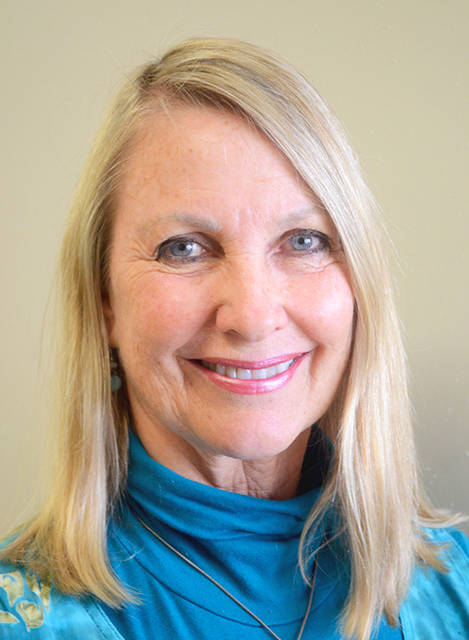Anna Smithwick of Wailua remembers growing up in Honolulu and enjoying going to a Kwan Yin temple with her mother. She remembers the beautiful smell of the incense and helping to fold the paper money.
She was healed at that temple when American and Chinese doctors offered no relief for a serious illness she had. At the age of eight they followed her Dad to Guam for his work. At the time the island was over 90% Roman Catholic. In the 9th grade she attended a Catholic High School and was required to take religion. She later was transferred to a Seventh Day Adventist School and later was visited weekly by Mormons at her home.
In college she met her Methodist husband Tom. They visited many Christian denominations. They also met a couple from Hawaii who introduced them to the Bahà’i faith. It spoke to them and they studied with them every other night. That was 52 years ago, and they continue to dedicate their lives in serving on the Kawaihau Spiritual Assembly of their east side community, hosting weekly devotionals and working with other who promote unity, peace, and community building.
Anna and Tom presented The Bahá’i faith to members of the Interfaith Roundtable of Kaua’i at their annual retreat in Koke’e last month.
The founder of the Bahá’i faith is Bahá’u’llah, a descendant of Abraham. He was born in 1817 in Tehran, Iran and was endowed with an innate knowledge of God. He was announced by The Bab, who served similarly as John the Baptist did for Jesus.
Bahá’u’llah taught that God is the Creator of all things and created them out of His love. He will always provide guidance when asked for help, and sends teachers and prophets to help people understand spirituality better. Prophets are called “Manifestations”. Jesus, Mohammed, Moses, Abraham, Zoroaster, and Bahá’u’llah are some of the manifestations. He predicted that more will come.
Below are some of the most important Bahá’i principles:
w The abandonment of all forms of prejudice
w Equal rights and opportunities for women and men
w The elimination of extremes of poverty and wealth
w Recognition of the common source and essential oneness of all the World’s great religions
w The eternal nature of the soul and the essential spiritual nature of life
w The establishment of a federated system of world government based on the principles of justice and collective security
w The recognition that true religion is in harmony with reason and with the pursuit of scientific knowledge
w The encouragement of high moral standards in personal life
These principles caused him to be exiled four times in different lands lasting over a period of 40 years, although he could have inherited his father’s position in the court system. He was imprisoned, and beaten. Yet even his enemies held him in high integrity.
Bahá’u’llah wanted all people to think for themselves and investigate spiritual truth. He wrote over 100 volumes. He believed in compulsory education. It was important to him that both women and men be educated. He believed that with the equality of women war would end.
Economic problems would be resolved through spiritual solutions.
He envisioned a time when there would be one common world faith, and that people would accept the oneness of humanity. But first prejudice had to be removed. People had to meet others accepting their oneness, and then listening to their perhaps different perspectives. However, members of all faiths are welcome to their worship and gatherings. Other symbols of creating oneness would be in having a universal language, and system of weights and measures.
The world center of the Bahá’i faith is in Haifa, Israel, although Bahá’u’llah was buried near Akka, Israel in 1892. There aren’t local churches or clergy in the faith, however there are Houses of Worship on every continent. They are also building temples in areas where the faith is growing rapidly.
There are elections. Local members elect their local spiritual assembly (planning and decision making council) every year.
The community also elects delegates to go to national conventions. Every five years the national convention elects the national assembly which goes to Haifa for a Universal House of Justice election, spiritual study circles, and devotional meetings. There are also specific classes for children ages 5-11, and 11-15.
The goal of the devotional meeting is to bring neighborhoods together, to talk, pray, discuss, and share silence with each other. Work done in the spirit of service is also considered worship. Spirit is meant to be integrated in all that a person does.
There are five assembly areas on Kaua’i: Kawaihau, Hanalei, Koloa, Waimea, and Lihue. If you are interested in learning more about them, or about the Bahá’i faith, please call Anna Smithwick
At 808-822-3166.
One Tree, Many Branches
A sharing of the different faiths and spiritual education organizations that are members of the Interfaith Roundtable of Kaua’i. We believe in Oneness, not sameness, just as a tree shares the same root and core, but each branch has a different perspective depending upon what it sees from its position. Each meeting one of our members presents his or her faith to us, for our increased understanding. This column exists that others on Kaua’i might also learn, or connect with the presenters.
•••
Annaleah Atkinson is a teacher, writer, a minister, mediator, and a resident of Kauai.


